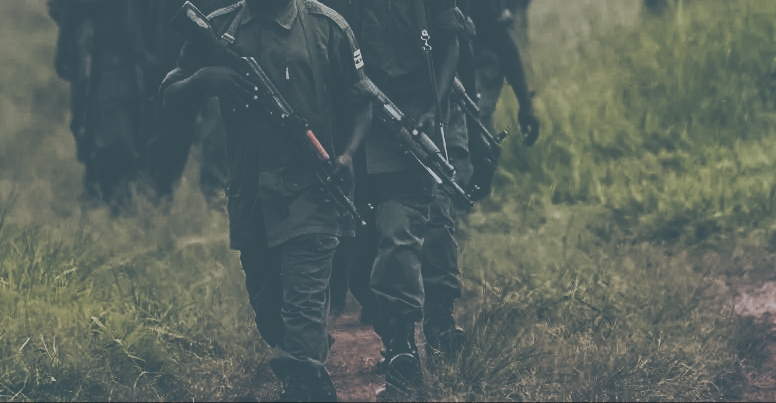Guerillas vs. Millenials, and one conversation we haven’t had

4 years ago during a casual convening at a friend’s house, one person joked that the Movement should write an invoice of how much money they owed Ugandans for having fought in the bush. Then we would have BOU take it out of the national coffers and pay them out to leave power. Now, whereas this seemed like only good natured humor employed to cope with the events (and Ugandans know how to do this well), it was also a thing we all in the room imagined might work. Call it desperation, or just being outright fed up of, as I we say: “fed up of it (the liberation) being held over our heads.”
A few months back, we revisited this conversation with other friends – this time from a more defined angle. Why the M7 generation does not give one flying fuck about recognizing the 1986 struggle. Why we’re always so quick to dismiss it. The responses betrayed a sense of resignation from hopelessness masked by a dismissive attitude. For the 90s and late 80s Ugandan, the President and his government were heroes in our formative years. Not because we saw the liberation war, because we most certainly did not – a fact that boomer voters and guerrillas alike have made sure we do not forget. But because like any great historical story about a place you call home, the M7-led revolution tales as told by our grandparents and parents inspired us. Greatly.
It is no secret that boomers and millennials have, and perhaps always will have a difficult relationship as we have come to witness. From quarrels about decent clothing v fashion exploration, right to the 2nd wave v the 3rd wave fight for womxn’s liberation. Yet for all these discrepancies resulting from a time lapse between when one camp came into the world and when the other was born, there’s not many more accurate representations of the term, generational gap, than the relationship between the Ugandan liberation historicals and millenials.
There’s another reason though – as a child is often likely to take up the adults’ habits in their home environment, so are they eager to learn the ideological beliefs followed by the adults. And for many of us, we believed in the movement also largely because of how massive the support for it in the elections we witnessed before 2001/6 was. Then a shift happened there after. Millenials started to see the inconsistencies with the stories we were raised on, and how the heroes were behaving towards political opponents. Now, we don’t know for sure, but what historicals – the “converted” included, boomers and the writers who have done the tremendous work of literary immortalization of our country’s history agree on, is that the National Resistance Movement meant well. And that they did well for at least the first 10 years after the war.
Many things have been argued as what led to the progressive trajectory making a wrong turn. A religious compliance to respectability politics perhaps. Or maybe, a decades-long conditioning to soldier discipline – a teaching that ofțen places the Commander-In-Chief in a dangerous position of beyond reproach. In the past election we learnt of another one which the brilliant Amama Mbabazi might know something about: an unquestionable belief in the proverbial queue. Yet one box remains unchecked. The trauma of war which whereas our grandparents acknowledged and often use as a case for why we must vote the incumbent, for the guerrillas it’s almost never discussed. Not openly at least.
Trauma changes everyone – for worse in many cases. But unaddressed trauma can morph even the most idolized human being into an unrecognizable tyrant. The historicals often act out: shoot people, slap traffic officers, infantilize opponents and dismiss young people while fearfully clutching onto their 1986 song of struggles and tremendous efforts. Now, for some, we have got to consider that they’re just terrible humans. But what others might have not admitted to themselves perhaps is that; this behaviour is a result of the demons that live in their heads. The carnage they both witnessed and caused. Pain that lives on, so much so that the only way to silence it is by asserting oppressive power.
So perhaps then it was unrealistic at best in the first place, delusional at worst, for us all to have expected these people to be the same: with the same ideas, passion, principles they had 34 years ago. The guerrillas fought indeed. For liberation. For peace. For inclusivity. For a better Uganda. But when the war was done, and it was time to return home from the cold jungle, move into nice warm houses for a change and award themselves medals, they might have forgotten to buy the one thing that they all needed urgently: professional psychotherapy.


